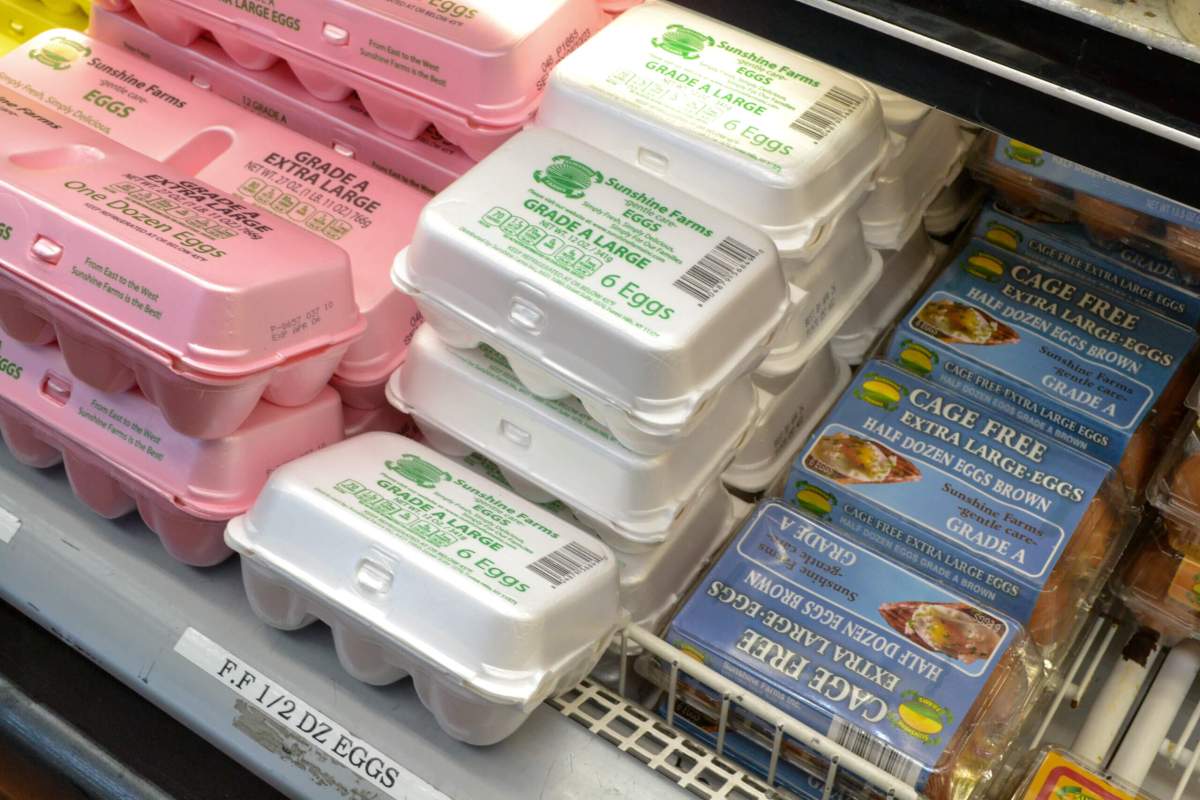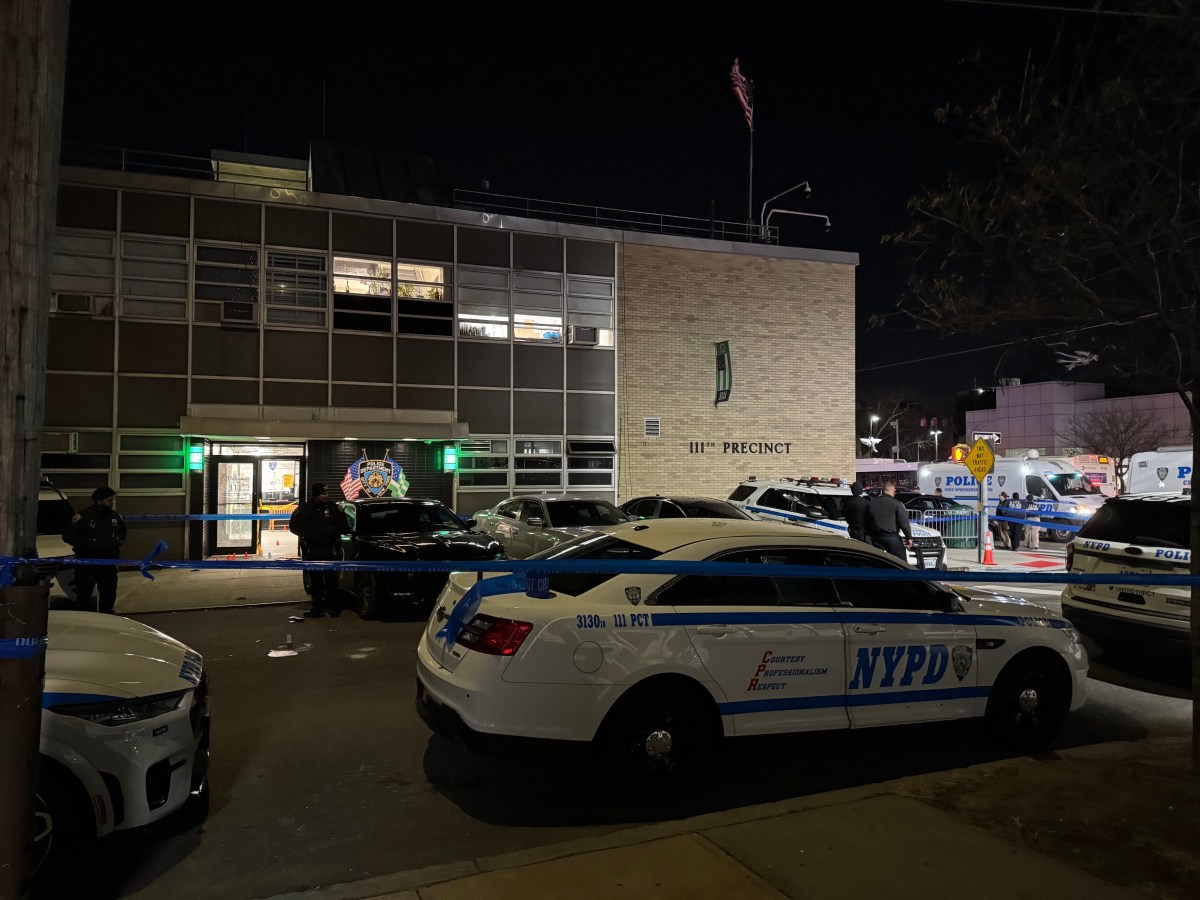This story was reported by Jada Camille, Paige Perez, Ethan Marshall and Gabriele Holtermann. It was edited by Christian Murray and Robert Pozarycki.
Overall inflation may be cooling off nationally, but don’t tell that to New Yorkers waiting on supermarket checkout lines as they prepare to dig deeper into their bank accounts for basic food items.
The cost of a trip to the supermarket continues to climb with everyday items such as eggs, cereals and meats soaring in price.
Many grocery store shoppers say they are coping with the hefty prices by looking for deals as a means to stretch out their dollars. Others say they are cutting back on what they eat and are more careful as to what they throw in their shopping carts.
While some lament that their incomes are not keeping pace with the increases—and are now going to the supermarket with price-specific lists.
The pain caused by these price hikes shows no signs of abating. The U.S. Bureau of Labor Statistics reported Tuesday that food prices in the New York-Newark-Jersey City region jumped 7.8% over the past 12 months through Feb. 28, with store-bought food items up 8.3% and prices for “food away from home” up 6.9%.
Jade San Filippo, 35, who was out grocery shopping in the Bronx Tuesday, said that she has noticed these hikes and told amNewYork Metro that she has been cutting down on certain food purchases — such as snacks and dairy items. She said that she buys fewer eggs and orders more of her grocery items online.
“The increases have been noticed,” San Filippo said. “Normally we wouldn’t really think about what we are putting in our cart, but now we have to actually think about what we are grabbing.”
She said that the mantra in her house is “’Don’t deviate from the list.’
“When you deviate from the list, you start putting random things in your cart,” San Filippo said. “That’s when the budget kinda goes up.”
Meanwhile, Asya Almonte, who was at Stop & Shop in Bay Terrace, Queens, this week, said that she often thinks twice before purchasing higher-priced grocery items and looks for deals. “People are buying what’s on sale and they’re forgoing the luxury items.”
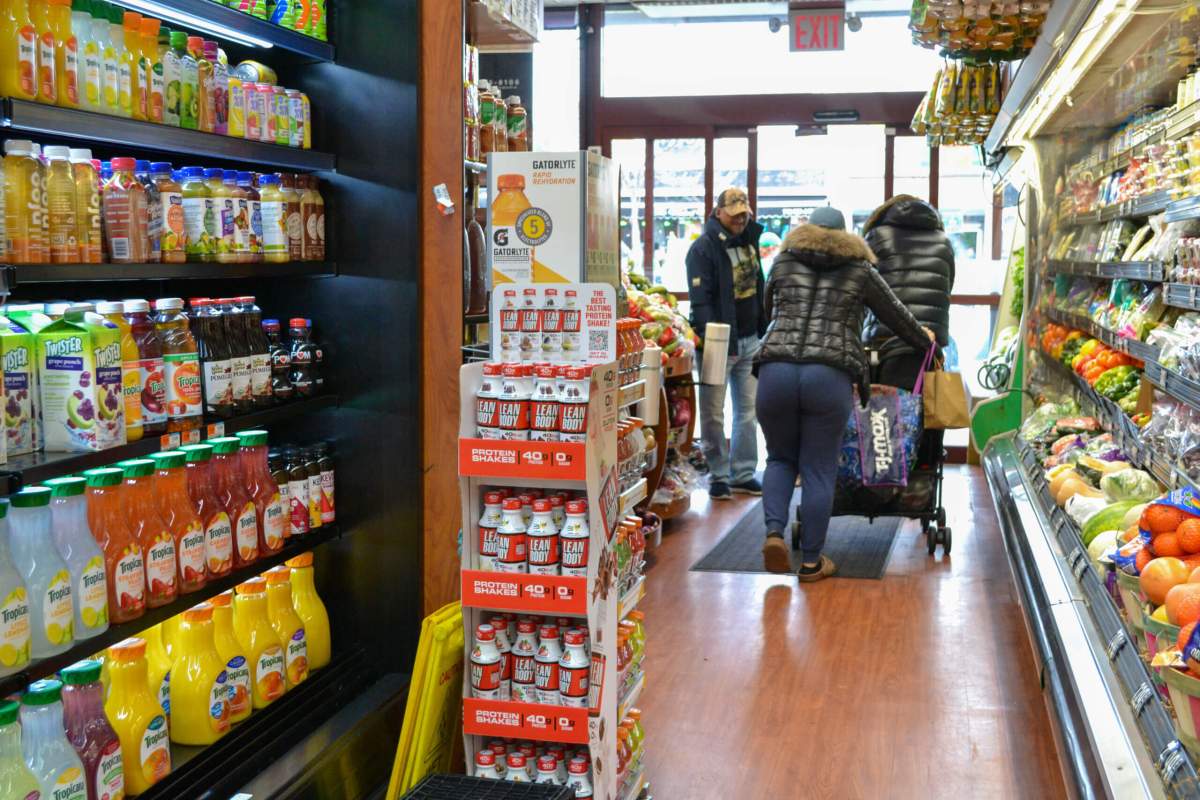
Grains, dairy prices soar
Prices have jumped the most for food items such as cereals in recent times, according to the Bureau of Labor Statistics, which released regional inflation data per food category.
Items categorized as “cereals and baked products” were up 11.1% for the 12-month period through Feb. 28, while “dairy and related products” were up 9.6%, and “fruits and vegetables” up 6.5%.
Bruce Bergman, a regional economist for the Bureau of Labor statistics, told amNY Metro that in recent years food prices have risen the most for items categorized as “meats, poultry, fish and eggs.” However, in the past 12 months, this category has moderated on a comparative basis, up 4.2 percent.
“This is a break from the trend,” Bergman said. “A lot of media attention has been devoted to eggs, meat and fish prices but now we are seeing the big increases in cereals and baked products.”
Bergman, however, did note that egg prices are only a small component of the “meats, poultry, fish and eggs” category, and that they have climbed.
The bureau reported that a dozen grade A eggs in the northeast cost $4.78 on average in February, up from $2.15 in February 2022.
Nationally, grocery items were up 10.2 percent over the past 12 months, with beef/veal prices up 1.8 percent, poultry 9.5 percent, fish and seafood 4.6 percent and eggs up 55 percent, according to the bureau. Regional data on these specific items was not available.
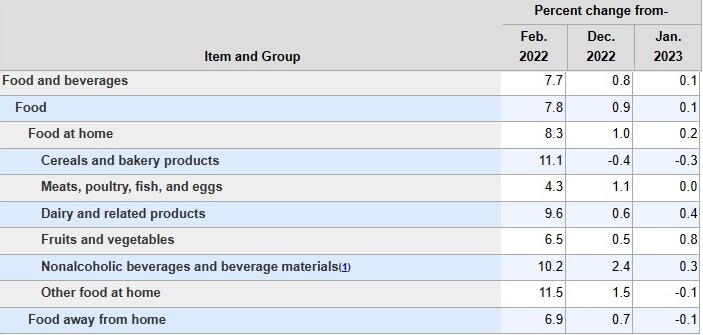
A side hustle just to eat
Supermarket workers have been on the front lines witnessing these increases and have also got to see customer resistance.
“Customers are not willing to buy [as many items] as they used to,” said the general manager at C-Town Supermarket on Nostrand Avenue in the Prospect Lefferts Garden section of Brooklyn. “When it comes to oil, rice, sugar, flour—all these prices have increased a lot and customers are not buying these anymore.”
Business at the supermarket has also slowed this year, the manager said, compared to the beginning of 2022.
One shopper at the Brooklyn store said that everything he buys has doubled in price in recent times. “My income is not going up, but the prices of the groceries are going up,” he said.
Many shoppers said that with the price increases they have less funds available to spend elsewhere. One shopper said that he is looking for a “side hustle” to help him keep up with the rising bills.
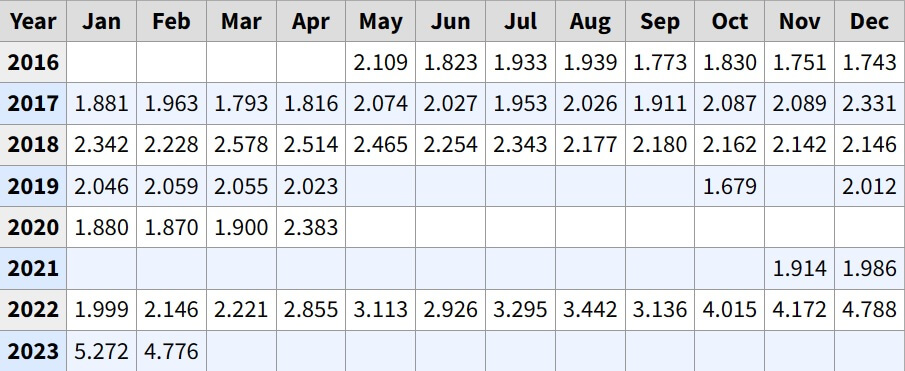
No relief in other areas
Many New Yorkers are struggling to keep up with the increased cost of living, with the overall Consumer Price Index for the New York-Newark-Jersey City region up 6% from February 2022.
Residents’ pocketbooks are being stretched when it comes to multiple items—such as their power bills and housing costs. From Feb. 2022 to Feb 2023, household energy prices increased 17.5%, with electricity up 20.9% and natural gas up 12.6%.
Meanwhile, “shelter costs” – which covers home ownership or rents –were up 5.6% in the past year.
Millie, who was out shopping and didn’t want to provide her last name, said that she had just received a notice that the maintenance for her coop in Fort Greene, Brooklyn, was going to go up by 13%.
“We’ve been used to, like 1%, 2%,” Millie said, “I’ve been living there like say, like 17 or 18 years, and now it’s been a shock to have such a huge increase.”
As far as grocery shopping goes, Millie said that she has become more selective and choses generic brands.
“The cost of living has gone up,” Millie said. “People are looking more for sales, things like that. And as an older adult, you know, having possibly no support, you know it’s become a little bit more difficult.”

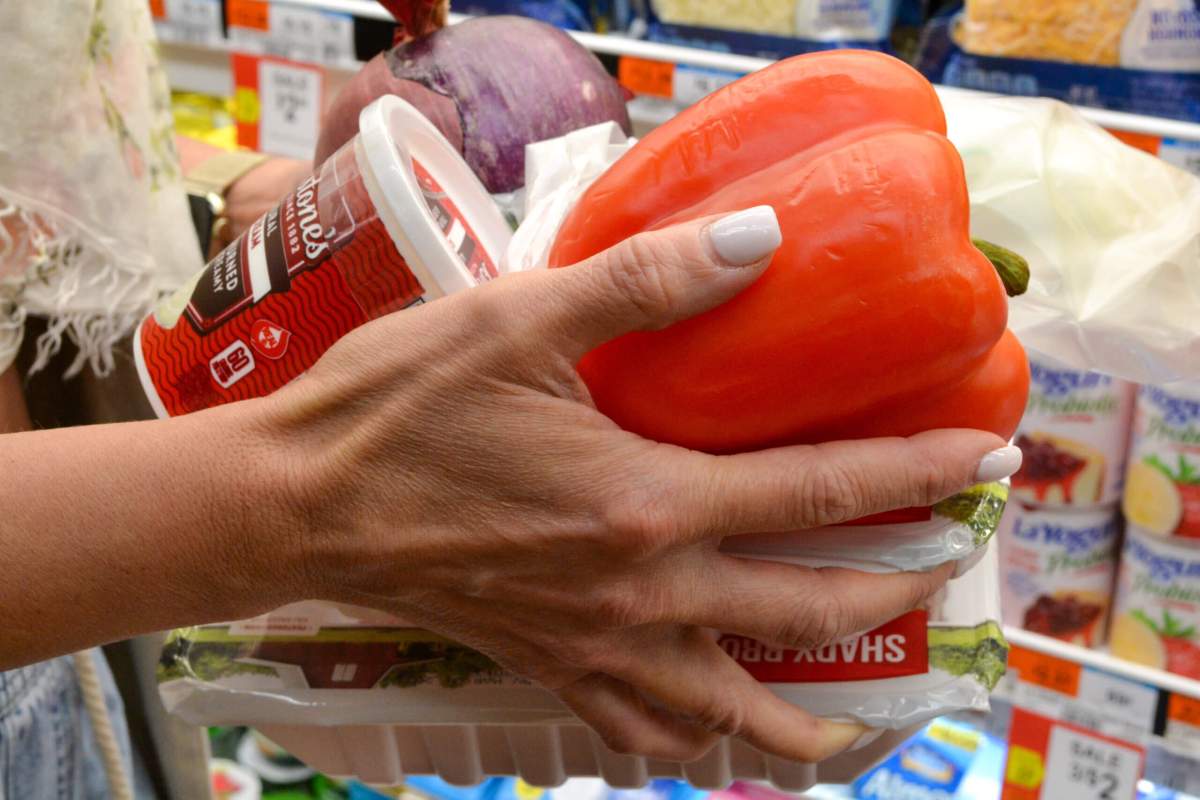
For many New Yorkers, their income has failed to keep pace with the rising living costs.
Data provided by the U.S. Bureau of Labor Statistics shows that wages and salaries in the New York region were up 5.1% for the 12-month period ending Dec. 31, 2022—which is the latest wage data released by the bureau.
Shopping for ways to cope
The price hikes and cost of living costs have hit some New Yorkers hard.
Charistine Solomon, a 49-year-old Bronx resident, said while shopping Tuesday that was relieved that she didn’t haven’t have to buy food for her entire family now that her adult children have fled the nest.
“I can’t even afford to buy food and it’s just me alone. Imagine if I had my children,” she said as she was loading her cart. “I hope when I go there [to the register] that the amount of money that I have enough to pay for this just milk, juice, and eggs.”
“Thank God my kids are grown. I can’t come in and buy a cart full of groceries.”
Many consumers, however, have not cut down on what they are buying, but are more price conscious than ever before.
“I pretty much get about the same thing all the time,” said Tamika Johnson, a 41-year-old Throggs Neck resident who was at a Bronx supermarket Tuesday. “But I bargain shop so if it’s too much at the supermarket I will go to a different store and be like ‘okay, if it’s too much here and a couple dollars cheaper, I’ll get it from here.'”
Meanwhile, John Thompson, 66, who was also at the supermarket Tuesday, said he has cut down on takeout food, and looks to buy food items that are on sale. He said that price hikes are causing people to evaluate what they eat.
“I think people are making decisions to eat differently,” Thompson said.
James Henley, who recently moved to Park Slope from Manhattan with his partner, said while shopping in Brooklyn that he’s resigned to the fact that, say, $50 doesn’t go far and that it can only get a few items. He has cut back on items like meat and eggs.
“It seems to be kind of unavoidable. You know, you walk in for four or five things and that’s it a grocery budget for the day,” Henley said. “I am cooking a lot more, rather than ordering in. Cut out ingredients here or there. I really don’t buy meat anymore… Occasionally, I buy like a rotisserie chicken because then you have it for a couple of meals, shred it you know, for lunch and stuff.”
Meanwhile, Juan Bastias, 41, who was out food shopping in the Bronx, said he is hopeful that the price hikes moderate.
Bastias may get his wish. There are early signs that food inflation may be easing in the region. The 7.8% year-over-year increase in February, follows on from January when food prices were up 8.4% on a year-over-year basis.
“I hope it gets back to normal. The metro-New York area, it’s so expensive to live here. I mean food prices shouldn’t be so high here. It’s ridiculous.”
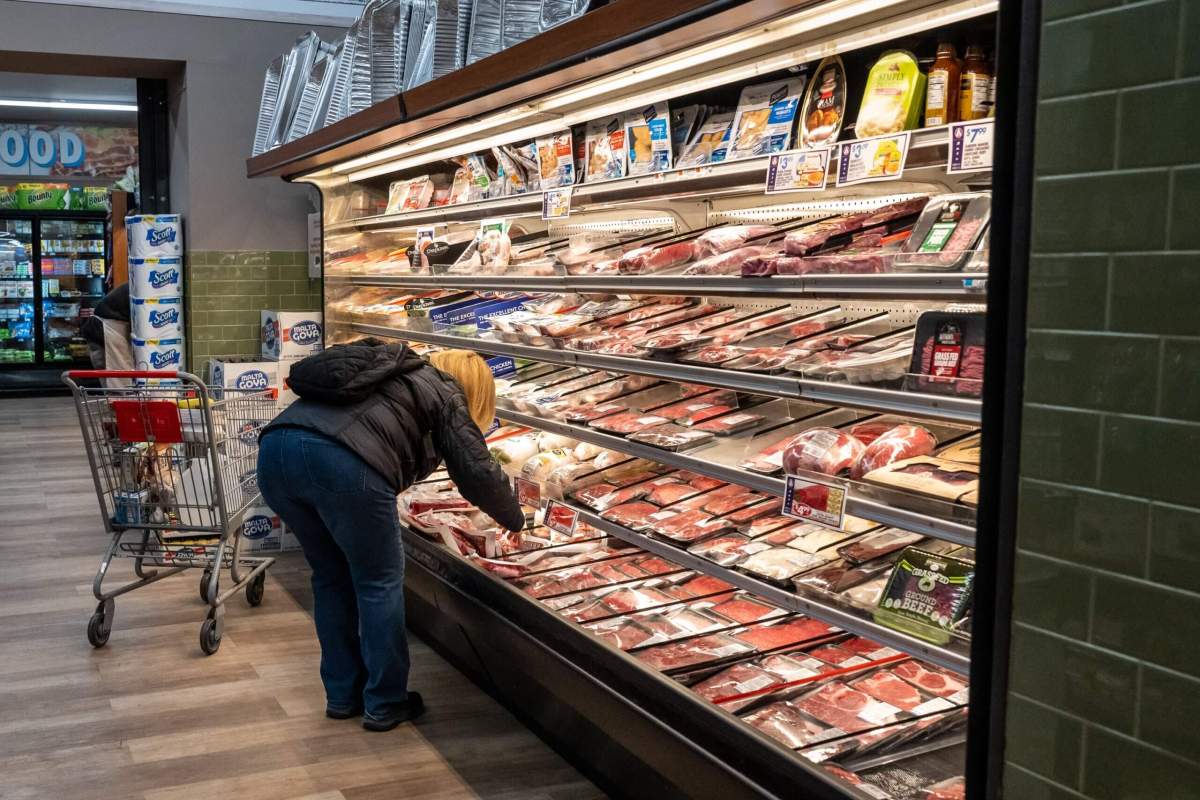
Read more: Upper East Side School Sued for Neglect and Unsanitary Conditions



